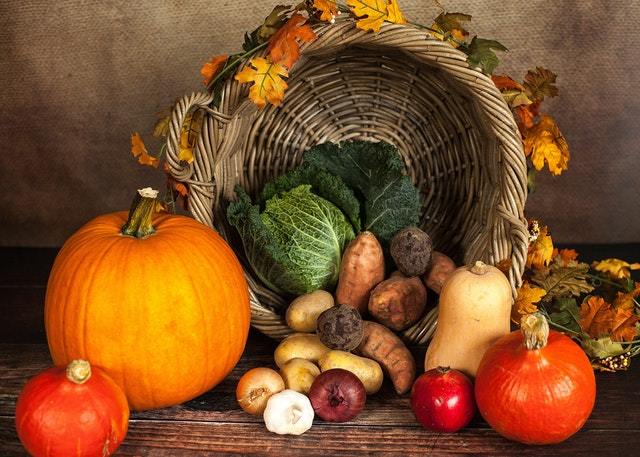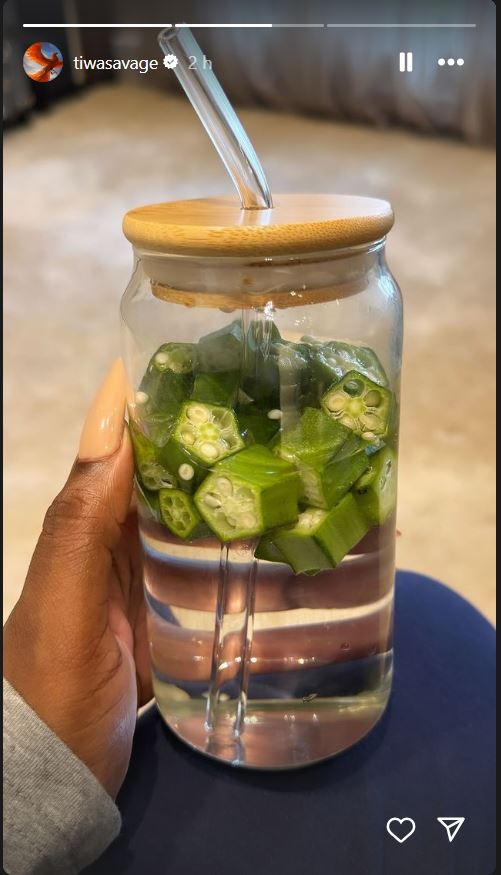Health
What Are The Best Foods To Eat?

If you are standing in a roomful of people and you ask them what the best foods to eat are, you might be shocked and surprised by the answers that you get.
And in some groups of your friends, you might be actually horrified by what you hear. After all, there are some people who are obviously embracing their obesity and the rampant health risks it brings with it. And there are those who are so militant about what they put into their mouths that you are shocked they have not taught their bodies to run on anything but (purified) air and (filtered) water. You may think you have to choose one of these two extremes, but it doesn’t have to be this way. There is a middle ground. The best foods to eat can be both tasty and good for you. You don’t have to choose between good health and good taste if you know exactly what you are looking for.
The Best Foods to Eat Look Like What They Are
If you eat an ear of corn at a Fourth of July picnic, you know exactly what you are getting. You know what it will taste like and you know how much you are going to enjoy it. Pick up something called “corn nibblers” from the frozen food section of the local grocery store, and you might be shocked to learn that corn is actually listed third on the ingredients list and doesn’t resemble any kind of corn that you have ever eaten before. Battered, fried, and filled with other ingredients including enough preservatives to keep you fresh for years, these should be called fried cakes of fat with a little corn. The foods that you eat should resemble their natural state as much as possible. Pull the corn off of the cob, and it is still corn, but more importantly, it still looks like corn.
Julie Holland, MD, wrote a recent column that appeared in Glamour magazine advocating that women (and men) return to their cave person selves- including eating real food. The diet should focus mainly on fruits and vegetables, things that grow in the dirt or hang from trees but also should include fish and lean meats and dairy foods. Foods that are full of preservatives and chemical additives should be avoided. But the list of foods that are not the best should not be mistaken to include all treats all of the time. If you can commit to eating healthy foods 85-90% of the time, your body can handle a little bit of sugar or other unhealthy food.
Remember that chicken should look like chicken parts, not small circles or dinosaurs. Fish should look like fish and not little sticks of minced up bits of unspecified fish.
The Best Foods to Eat: Specific Examples
In the world of protein, the egg is considered to be the perfect food. It’s high in protein, low in calories, and lower in cholesterol than previously thought.
Protein is rated based on digestibility with the egg ranking at 100%, so all the protein contained in the egg is digested and used by the body. In the book “The New Abs Diet for Women,” power foods are listed as the best foods to eat, including the egg, which in addition to protein is also high in Vitamin A and B 12. The other foods listed as “superfoods” include:
- Almonds and other nuts
- Beans and other legumes (they have three times the soluble fibre of oatmeal and are also high in magnesium, which can help promote cardiovascular health)
- Spinach and other green (especially dark green) vegetables
Dairy - Instant oatmeal (steel cut is even better, however)
- Turkey and other lean meats, especially skinless poultry
- Peanut butter
- Olive oil
- Whey protein powder
- Raspberries and other berries
Other super food choices:
Avocado: high in mono-unsaturated fat and may help lower cholesterol.
Chile: high in vitamin C and the compound capsaicin which may help with weight loss and may also shrink fatty tissues.
Quinoa: a powerful source of complete protein and is actually higher in protein than most whole grains. It can be used to replace rice in any dish or can be added to soups and salads.
Papaya: high in potassium, folic acid and has more vitamin C than an orange. Papayas could lower cholesterol levels and minimize inflammation.
Cilantro: contains antioxidants which help to prevent diseases. It is also used by Latin Americans to settle the stomach and is common as an ingredient in salsa and other spicy dishes.
Pumpkin seeds (also called “pepitas”): contain phytosterols which may help to reduce cholesterol and are loaded with protein.
Coconut water: naturally fat-free and low in sodium, coconut water is high in potassium. It has half the calories in popular beverages.
Why the Best Foods to Eat Sometimes End Up in the Trash?
Some of the parts of the fruits and vegetables we eat end up in the compost pile or worse, in the trash. You might try eating the peels of many of the foods that you eat right now to get the added boost of nutrients that you are normally just throwing away. For instance, the fibre in the potato is what helps you keep hunger at bay, and half of it is in the skin.
Almost all of the quercetin in an apple is in the peel. This antioxidant helps to ward off certain types of cancer. The peels of kiwis are high in vitamin E. Orange peels have d-limonene, which may protect against skin cancer. Broccoli stalks have an entire day’s worth of vitamin C and can be just as tender as the florets. The peels of the carrot peels are high in beta-carotene.
The Best Foods to Eat Are Low in Sodium
While we know that a little bit of added salt enhances the flavour of foods when we are cooking, it is also important to know that there is a ton of sneaky salt in our foods that we may not be aware of, even in ice cream and cookies. It is estimated that up to three-quarters of the salt in our daily diet comes from packaged and processed foods. It is important to read labels carefully or to steer clear of these foods altogether.
Even foods that are listed as “lower” in sodium may still be fairly high in sodium. The experts suggest the 1:1 ratio. For instance, if there are 200 calories per serving, there should only be 200 milligrams of sodium or less in that serving.
The Best Foods to Eat Are Sometimes Not Foods at All
In addition to healthy whole foods, including the super foods that are listed above, there is the option to use protein supplements like Profect as part of your healthy diet. Profect, a protein shot from Protica is high in protein.
In conclusion, people need to eat nutritious foods and they also need to exercise to keep their body stay healthy such as waist trainer workout, jogging, cardio exercise, yoga and etc. Recently there has one blog is getting famous because sharing the effective ways to waist train to maintain their weight in standard levels.
Health
One in 12 men tested in Lagos showed signs of prostate cancer, says Goke Akinrogunde

Goke Akinrogunde, a medical practitioner and chairman of the honorary members’ forum of the Nigeria Air Force Officers’ Mess (NAFOM) Ikeja, says one in 12 men tested in Lagos showed signs of prostate cancer.
WHAT IS PROSTATE CANCER?
The prostate is the walnut-sized gland found in males.
It is located just below the bladder and in front of the rectum, surrounding the urethra — the tube that carries urine out of the bladder.
The prostate makes some of the fluid that is part of semen.
When a man has prostate cancer, it means the cells in the prostate gland have begun to grow out of control.
It is unclear what causes these cells to grow out of control.
CREATING AWARENESS
Akinrogunde spoke at the HMF-NAFOM annual general meeting on Wednesday. The event held at the Sam Ethan Airforce Base, Ikeja.
The event which had A. I Sambo, president of the mess committee (PMC), and T. Abu, the base’ commander, in attendance, featured a health session themed: ‘Men’s health, women’s concern: erection and prostate matters’.
The HMF is the honorary civilian wing of the air force officers’ mess.
Akinrogunde noted that the meeting serves as an avenue for socialisation between the military and civilian members of the mess.
He emphasised the importance of addressing the health and wellness of older men, while citing the prevalence of prostate cancer in Nigeria as the rationale for the theme.
“This meeting is a good opportunity for the civilian and military members of the mess to interact. As civilians, we are in the civil society, it is important that we think of what will be beneficial to both segments of the mess and hence the topic,” he said.
“Prostate health is always very relevant and while the discussion might not be common, prostate cancer is quite common in out society. For example, there is a study that was conducted in Lagos sometime which shows that one out of twelve men tested showed signs of prostate cancer.
“This is a good opportunity to bring the awareness to our people.”
Taiwo Alabi, the guest lecturer, who was represented by Tunji Olakunle, an endourologist, said factors directly linked to the occurrence of prostate cancer include race, age and genetics.
He added that men aged 40 and above are encouraged to conduct the baseline prostate specific antigen (PSA) test every six months to detect the likely occurrence of prostate cancer.
He encouraged members to practise safe sexual activities and to seek appropriate medical intervention where necessary.
The event saw the inauguration of new executive members of the HMF by A. I Sambo.
The executive inaugurated included Goke Akinrogunde as the chairman; Bello Olanrewaju as the vice chairman; Azubuike Chuks as the general secretary; Adesina Babatunde as the treasurer; Uzu Onyeka John as the entertainment officer; Sokoya Olufemi as the public relations officer; and Shina Badaru as the chief adviser.
The PMC also awarded TheCable newspaper the ‘numero uno corporate partner’ for its corporate social responsibility (CSR) initiatives for 2022-2023.
Health
7 health benefits of eating seaweed

Seaweed, also known as kelp, nori, or marine algae, comes in a variety of shapes, sizes, and colours.
Each variety offers its distinct taste and texture. Seaweed is surprisingly versatile and can be enjoyed in a multitude of ways.
Here are 7 amazing reasons to consider adding a touch of the ocean to your plate:
1. Nutrition
Seaweed is a nutritional goldmine, brimming with essential vitamins and minerals that your body needs to thrive. It’s an excellent source of iodine, a vital mineral for healthy thyroid function. Just a small amount of seaweed can meet your daily recommended intake of iodine, helping to regulate your metabolism, energy levels, and brain function.
Seaweed is also a good source of vitamins A, C, E, and K, all essential for maintaining a healthy immune system and promoting cell growth and repair. Seaweed is also a natural source of magnesium, essential for regulating blood pressure and muscle function, as well as iron, which helps transport oxygen throughout your body.
It contains calcium, crucial for strong bones and teeth, and potassium, which helps maintain healthy blood pressure.
2. Gut health
The human gut is a complex ecosystem teeming with trillions of bacteria, both good and bad. A healthy balance of these microbes is crucial for health and digestion. Seaweed is a prebiotic, meaning it provides nourishment for the good bacteria in your gut. These friendly bacteria help with digestion, and nutrient absorption, and even play a role in immune function.
By feeding these good bacteria, seaweed helps to create a thriving gut environment that keeps you healthy. Studies have shown that a balanced gut microbiome can help reduce the risk of digestive issues like constipation and irritable bowel syndrome, as well as strengthen your immune system against harmful pathogens.
3. Weight management
If you’re looking for a natural way to manage your weight, seaweed might be your new best friend. Seaweed contains a type of fibre called alginate, which forms a gel-like substance in your stomach. This gel helps you feel fuller for longer, promoting satiety and reducing cravings. This, in turn, can lead to a decrease in overall calorie intake and support weight management efforts.
In addition to its fibre content, seaweed is naturally low in calories and fat, making it a guilt-free way to add variety and nutrients to your meals.
4. Heart health
Heart disease remains a leading cause of death worldwide. The good news is that seaweed might offer some protection for your heart. Seaweed contains healthy fats, including omega-3 fatty acids, which have been shown to promote heart health by reducing inflammation, lowering bad cholesterol levels, and improving blood pressure.
Seaweed may also help to prevent blood clots, which can block arteries and lead to heart attacks and strokes. Furthermore, its rich supply of antioxidants helps fight free radicals that can damage blood vessels and contribute to heart disease.
5. Blood sugar control
For people with diabetes, managing blood sugar levels is crucial. Seaweed might offer some unique benefits in this regard. Studies suggest that certain types of seaweed, like wakame and fucoidan, may help regulate blood sugar levels. These seaweeds may slow down the absorption of carbohydrates in the gut, preventing blood sugar spikes after meals.
Additionally, seaweed may improve insulin sensitivity, allowing your body to utilise insulin more effectively and keep blood sugar levels under control.
Health
Five benefits of drinking Okra water

Of recent, the trend of drinking okra water has gained traction backed with compelling evidence of its numerous health benefits.
In this article, we dive into the world of okra water and uncover five amazing key benefits of incorporating okra water into your daily diet, thereby unlocking the nutritional power hidden within:
Improved digestive health
Okra water is rich in soluble fiber, which aids digestion by promoting regular bowel movement and preventing constipation. It contains a gel like substance called mucilage that soothes and coats the digestive tract, reducing inflammation and easing symptoms of gastrointestinal discomfort. regular consumption of okra water can contribute to a healthier digestive system .
Weight Loss Management
Okra is low in calories and contains high fiber content, which can help make one fuller for longer . The soluble fiber in okra water helps increase feelings of fullness reducing appetite as well as unnecessary cravings. By including okra water into a balanced diet, individuals can support their weight loss goal in a sustainable manner.
Blood Sugar regulation
If you are watching your blood sugar levels or have a loved one doing so, this benefit of okra water would be really helpful as it tends to have potential benefits for blood sugar regulation. Okra contains soluble fiber, which can slow down the absorption of sugar in the digestive system, helping to stabilize blood sugar levels . By incorporating okra water into your diet, you may experience more consistent blood sugar levels and reduce the risk of complications associated with diabetes.
Heart Health Promotion
Okra is rich in nutrients like fiber, antioxidants and vitamins that contribute to a healthy heart. The fiber content in okra can help lower cholesterol levels, while the antioxidants can help reduce inflammation and protect against heart disease. However, it’s important to remember that okra water alone is not a magic solution. A balanced diet, regular exercise, and overall healthy lifestyle are key for promoting heart health.
Skin and Hair Benefits
Okra water contains vitamins and minerals, including vitamin C and biotin, which can indeed benefit both skin and hair health. Vitamin C acts as an antioxidant, helping to protect the skin from oxidative damage caused by free radicals, thereby promoting healthier skin. Biotin, also known as vitamin B7, supports the health of hair by promoting stronger, thicker strands. Incorporating okra water into your diet or using it in beauty treatments may provide a natural way to enhance the health and appearance of your skin and hair.
With this benefits of okra water stated, if you happen to be a naysayer to okra water, you should definitely think about its benefits.
-

 Crime1 week ago
Crime1 week agoUK-based Nigerian doctor, Tijion Esho loses licences over sex for free Botox injections
-

 Entertainment1 day ago
Entertainment1 day agoKanayo introduces first son to filmmaking (Video)
-

 Business1 day ago
Business1 day agoNaira depreciates at parallel market, appreciates at official window
-

 Business1 day ago
Business1 day agoNERC reduces FX rate for calculating new tariff for Band A customers by 16.03%
-

 Business1 day ago
Business1 day agoCBN directs banks to charge 0.5% cybersecurity levy on electronic transfer
-

 Crime1 day ago
Crime1 day agoNigerian vendor in UK, Musiliu Badejo jailed for selling toxic skin bleaching products
-

 Business1 day ago
Business1 day agoFive levies Nigerians pay for electronic transactions
-

 Entertainment1 day ago
Entertainment1 day agoPortable acquires luxury house in Lekki (Video)


















